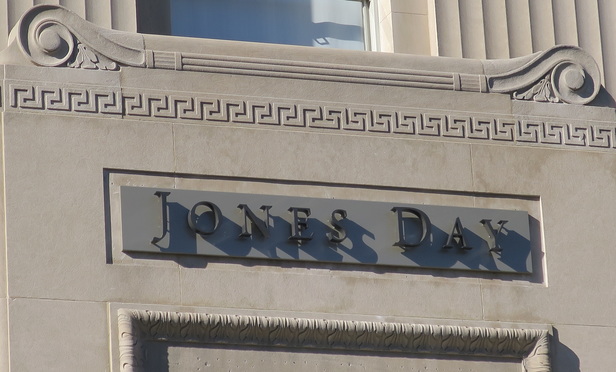The ethics waiver says the six lawyers can meet and communicate with their former law firm, even though the firm represents President Donald Trump’s campaign committee, the Republican National Committee and other Trump political action committees in transactional, litigation and general legal advice situations.
The lawyers should be able to meet with Jones Day “to ensure the interests of the president are protected, and disqualification … would limit the ability of the office of White House counsel to effectively carry out its duties,” the waiver said.
Stefan Passantino, deputy counsel to the president, and James Schultz, a senior associate White House counsel, authored the waiver given to the Jones Day lawyers. Passantino, a former Dentons partner, and Schultz, previously chair of Cozen O’Connor’s government law and regulatory practice, were not among the other White House employees given special permission to work with former clients or their firms.
But Andrew Olmem, a former Venable financial services partner-turned-special assistant to the president, was. Olmem received a waiver so he can talk with former clients about Puerto Rico’s fiscal issues, insurance capital agreements, the Flood Disaster Protection Act, the Financial Stability Oversight Council’s treatment of insurers and on some federal financial regulatory matters.
In private practice, Olmem represented the Property Casualty Insurers Association of America, insurance providers Lloyd’s America and Metropolitan Life Co., several investment, capital and asset management organizations and other companies including General Electric and American Express. The specific former clients the White House ethics waiver allows Olmem to speak with are Franklin Advisers, Angelo Gordon & Co., Blue Mountain Capital Management, De Shaw Galvanic Portfolios, Knighthead Capital Management and Marathon Asset Management.
“The administration has an interest in you working on covered matters and serving on that working group due to your experience and expertise in working on these issues in the past,” McGahn wrote to Olmem about a Puerto Rico fiscal policy working group.
Other blanket waivers issued Wednesday went to 10 individuals in the White House including Chief of Staff Reince Priebus to excuse his previous connections to the Republican National Committee; Kellyanne Conway, to allow her to work with her former political, advocacy, trade and non-profit clients; and to all Executive Office of the President and to all White House Office commissioned personnel so they can work with news organizations—likely including Breitbart News, where chief strategist Stephen Bannon previously worked—and Republican political groups where they may have ties.
The White House posted the disclosures on its website.
Previously, the separate U.S. Office of Government Ethics have released ethical disclosures about White House employees, including their financial transparency statements.
An ethics pledge taken by White House employees, and fortified with an executive order from President Donald Trump on Jan. 28, bars them from having official communications with former clients and employees and from tackling issues in the White House for which they lobbied, dating back two years. The executive order nodded to Trump’s previously stated intention to “drain the swamp” of Washington’s revolving door and influential corporate interests.
Until this week, the White House declined to disclose ethics waivers it had granted to employees, in essence shielding advisers from a public acknowledgement that their past work presented conflicts of interest. The secrecy had been in direct opposition to the OGE’s calls for transparency since January. Several top advisers to the president, especially those that had come from the financial services and law firm worlds, had advocated for corporate entities with political interests weeks before they had joined the administration.
Separately, former Jones Day partner Noel Francisco, Trump’s pick for U.S. solicitor general, faced scrutiny over his participation in immigration litigation concerning travel restrictions against seven Muslim-majority countries. The liberal advocacy group American Oversight sued the U.S. Department of Justice in May for details about his work on cases in which Jones Day had filed friend-of-the-court briefs.
The Justice Department on May 26, responding to the lawsuit, disclosed a series of internal emails that revealed waivers Francisco received to continue to work with Main Justice lawyers defending Trump’s travel-ban executive order.
“As the Acting Solicitor General, he is leading the department’s legal strategy in these extremely high profile cases. In addition, these cases are proceeding at a rapid pace, requiring the government to have a point person ready to lead the government’s defense,” Cynthia Shaw, director of DOJ’s Departmental Ethics Office, wrote in a Feb. 9 email to Scott Schools, associate deputy attorney general. “It benefits the government to have Mr. Francisco provide oversight and continuity in the highly fluid legal environment surrounding the immigration order.”
Mike Scarcella, a senior editor in Washington, contributed to this report.
Copyright The National Law Journal. All rights reserved. This material may not be published, broadcast, rewritten, or redistributed.






